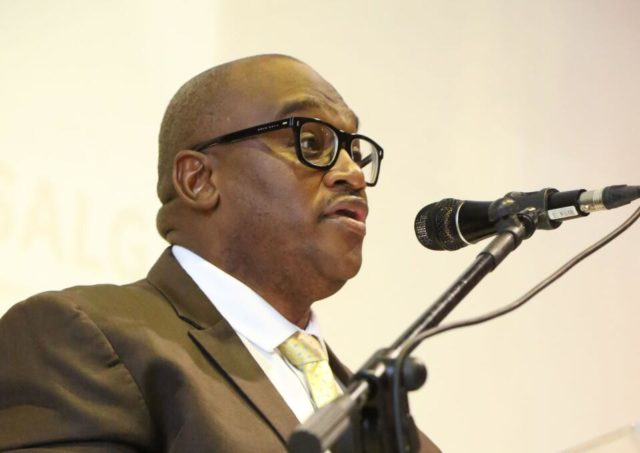Coghsta MEC Bentley Vass said on Monday that the salary bill was collapsing some municipalities in the Northern Cape.
THE MEC for Co-operative Governance, Human Settlements and Traditional Affairs (Coghsta), Bentley Vass, said on Monday that the salary bill was collapsing some municipalities in the Northern Cape.
Vass was speaking at the South African Local Government Association (Salga) provincial conference, which started on Monday.
The MEC added that the matter should be deliberated on by the affected councils to prevent municipalities from “imploding”.
He noted that the inability of municipalities to collect revenue, as well as the high rate of debt, posed a serious risk to service delivery.
Vass added that the Covid-19 pandemic had resulted in job losses that in turn had placed municipalities under further financial distress.
“In some instances, third parties are not paid and this brings tensions between the employer and employees,” said Vass.
“It is important for municipalities to fill senior management vacancies. People with suitable qualifications must be recruited and employed.
“Municipalities should desist from appointing chief financial officers as acting municipal managers.”
Vass encouraged councillors to “make a habit” of meeting with the community to listen to and address their concerns.
“Councillors cannot be scared of the people that elected them.”
Northern Cape Premier Dr Zamani Saul added that all councillors, irrespective of their political affiliations, had a responsibility to deliver services across the Province to improve the lives of communities over the next five years.
“It is crucial for ward councillors, together with the ward committee members, to interact constantly with communities to identify critical issues and avoid situations that might lead to protests within particular wards,” said Saul.
He stated that the provincial bank account showed a positive bank balance – “after many years” – of more than R360 million.
“The hard work begins now and the task is clear. We need to reduce unemployment, increase access to better quality basic services, overcome the legacy of apartheid spatial development, strengthen community participation and build an effective, accountable and clean local government.
“Local government is where physical implementation of policies and legislation takes place and where lives are changed for the better.”
Saul said that an urgent solution was needed to the challenges of poverty, inequality and increasing unemployment in the Province.
He believed that “tremendous progress” had been made with regards to the provision of water, electricity, sanitation and refuse removal at a local level.
“These rates of delivery are unprecedented in worldwide terms. The reality, however, is that more can be done and needs to be done because the challenges that exist cannot be ignored, and this is where we need to join hands to make sure we improve the lives of our people. Our goal is to improve the functioning of municipalities to deliver better services to communities by getting the basics right.”
Saul pointed out that it was crucial for municipalities to manage their budgets in a responsible manner.
“We are aware that the contracts of many municipal managers and senior managers have come to an end and recruitment processes have already commenced. Salga, Coghsta and Provincial Treasury will continue to support municipalities during the selection process to ensure that municipal councils appoint suitably qualified, experienced and competent senior managers.”








